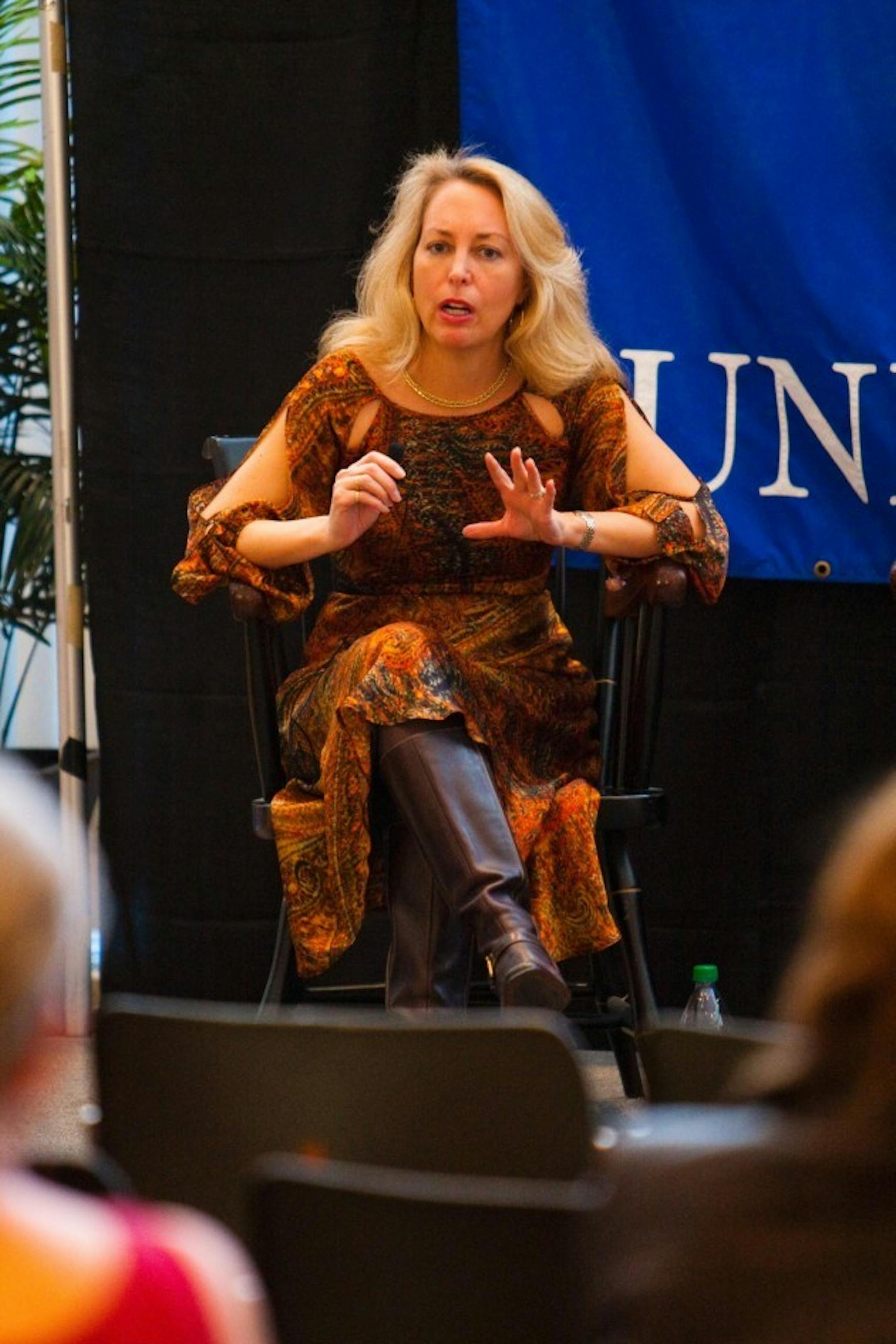Couple discusses CIA leak scandal
Former Central Intelligence Agency Covert Operative Valerie Plame Wilson and former Ambassador Joe Wilson spoke in the Rapaporte Treasure Hall last Wednesday about their roles in investigating claims of nuclear threat leading up to the Iraq War and about how the information they uncovered was manipulated by the administration of then-U.S. President George W. Bush.
Plame spoke first about her experiences. Rather than telling her story as a political issue about Democrats versus Republicans she said, "This story is about power and the abuse of power," she said.
Public service was considered "noble" in Plame's family growing up and this mentality contributed to her choice to work for the CIA, she stated during the talk. "I loved my job. … I really found a great sense of satisfaction from what I was doing," she said, noting that her time as a covert operative included recruiting foreign spies and gaining expertise in preventing the "bad guys" from acquiring nuclear weapons.
In 2002, Plame was responsible for gaining information on Iraq nuclear weapon development. This process was difficult, she said, because the United States Embassy in Iraq was shut down after the First Gulf War and because former Iraqi President Saddam Hussein had expelled weapons inspectors from the country in 1998.
Plame explained that she learned about the possibility that Niger was selling yellowcake uranium, a powder that can be used in the production of nuclear weapons, to Iraq after the Office of the Vice President contacted one of her young employees. A CIA analyst recommended that she send her husband, Wilson, to Niger to investigate the claim, Plame continued.
According to Plame, two government analysts met Wilson as soon as he returned from Niger to the Wilson's home in Washington, D.C. He informed them that the yellowcake uranium claim was "totally bogus," Plame said.
In January 2003, then-President Bush announced that "the British government ha[d] learned that Saddam Hussein [had] recently sought significant quantities of uranium from Africa," in his State of the Union address. Plame said she thought at the time that Bush was referring to an African country other than Niger and that the assertion must have been separate from the claim that Wilson had investigated the previous year.
According to Plame, media sources had begun attributing the claim to an unnamed former ambassador. The Wilsons began doubting the truth of Bush's statement, Plame said, particularly following an interview in which then-Secretary of State Condoleezza Rice disclosed information on the subject that the Wilsons knew to be erroneous.
"I felt that our troops [in Iraq] were in mortal peril" because the nuclear threat that had been the "central rationale" for invasion was now in doubt, Plame said.
On July 6, 2003, The New York Times printed an op-ed by Wilson titled "What I Didn't Find in Africa" detailing how he believed that information about the sale of yellowcake uranium from Niger had been manipulated. On July 14, 2003, an article in The Washington Post by columnist Robert Novak ousted Plame Wilson as a CIA covert operative.
Plame was worried about her career and about the safety of her then-three-year-old twins, she said. The period following Novak's article felt like "falling down Alice's rabbit hole, where white is black and black is white," she added.
According to Plame, media sources referred to her as a "glorified secretary" and accused her of nepotism for sending her husband to Niger. She resigned from the CIA in 2006 and filed a civil suit against former U.S. Deputy Secretary of State Richard Armitage, former U.S. Vice President Dick Cheney, former adviser to the vice president Scooter Libby and former Senior Advisor to the president and former Deputy Chief of Staff Karl Rove for contributing information to Novak's article.
Plame concluded by encouraging students to become involved in public service. "You've got to hold your government in account for their words and deeds," she said.
Wilson then spoke, stating that the "propaganda campaign" against him and his wife "ignored the salient facts" about the yellowcake claim. "The administration knew [the claim] was bogus," he said, but had come to the conclusion that they "could not afford to wait" in acting on the nuclear threat.
Citizens have the responsibility to challenge the reasons for going to war, Wilson said, especially when the government has been caught in a "bald-faced lie."
"The time to ask questions is before. … You cannot be passive in self-governance," Wilson said.
The Wilsons have each published books about their experiences; Wilson's The Politics of Truth: Inside the Lies that Led to War and Betrayed My Wife's CIA Identity: A Diplomat's Memoir was released in 2004, and Plame 's Fair Game: My Life as a Spy, My Betrayal by the White House was released in 2007. Fair Game, the film based on their memoirs starring Naomi Watts and Sean Penn, was released in 2010.
The Office of the Provost sponsored the event.



Please note All comments are eligible for publication in The Justice.